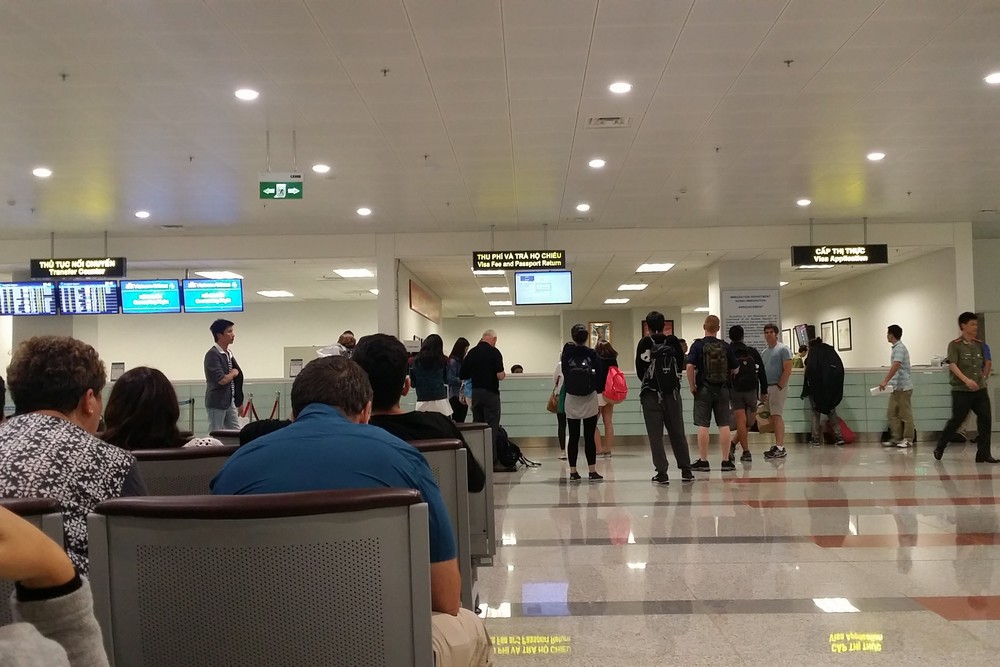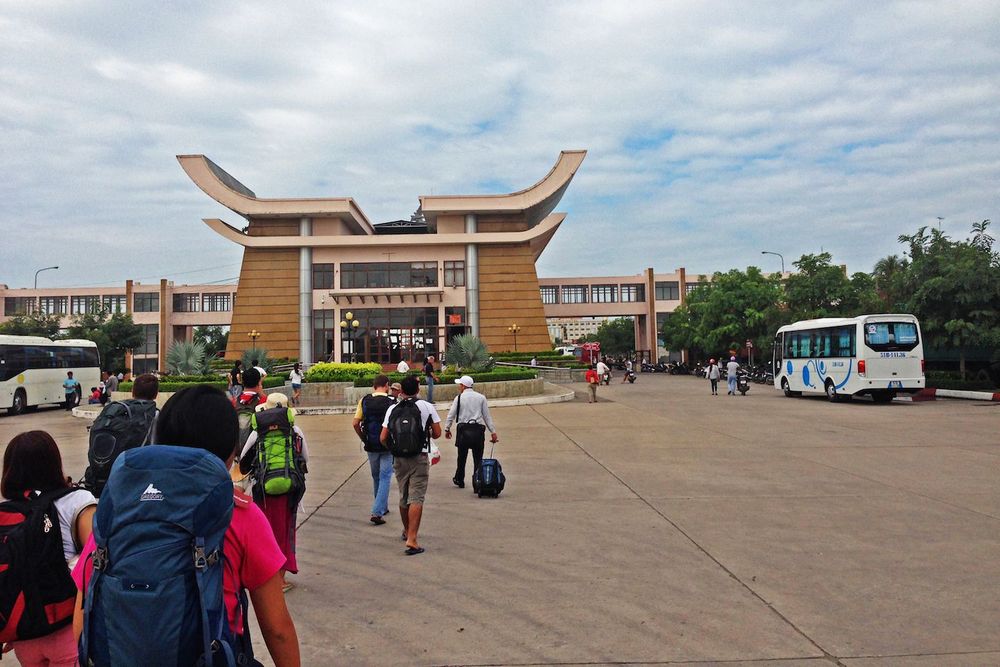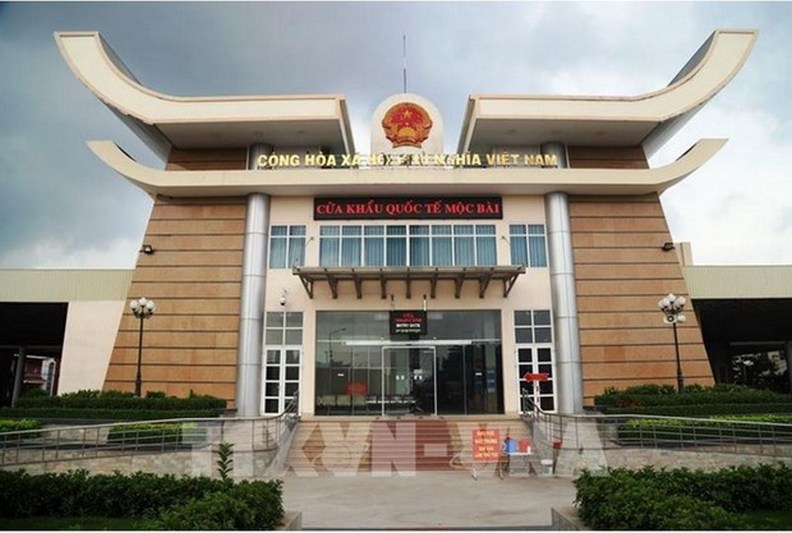Vietnam Immigration: Regulations, Requirements and Things to know
Vietnam is a country known for its rich culture, stunning landscapes, and vibrant cities. For travelers looking to explore this diverse destination, understanding the immigration process is crucial. Navigating Vietnam’s immigration requirements can seem daunting at first, but with the right information, you can ensure a smooth entry into the country. In this detailed guide, we will delve into the intricacies of Vietnam immigration, covering everything from visa types to application processes and recent updates in regulations.

Tourists line up to complete entry procedures into Vietnam.
Understanding Vietnam’s Immigration System
When planning a trip to Vietnam, one of the first things to consider is the country’s immigration system. Vietnam has specific rules and regulations governing entry and stay for foreign visitors. The Department of Immigration under the Ministry of Public Security oversees immigration matters in Vietnam, ensuring that all travelers comply with the necessary requirements.
Entry Points and Visa Requirements
Travelers entering Vietnam must do so through designated entry points such as international airports, land border crossings, or seaports. Depending on their nationality and the purpose of their visit, individuals may need to obtain a visa before arrival or qualify for a visa exemption.
- Visa on Arrival (VOA): This option allows travelers to obtain a visa upon arrival at select Vietnamese airports. However, it is essential to pre-arrange this type of visa through a reputable agency to avoid any complications.
- E-Visa: The electronic visa (e-visa) system enables eligible travelers to apply for a visa online before their trip. E-visas are convenient and streamline the entry process for many visitors.
- Visa at Embassy/Consulate: Some travelers may need to apply for a visa at a Vietnamese embassy or consulate in their home country before traveling. This option is ideal for those who prefer to have their visa secured in advance.
Eligibility Requirements for Vietnam Visas
Before applying for a visa to Vietnam, it is crucial to understand the eligibility criteria set forth by the Vietnamese government. The requirements vary depending on the type of visa sought and the traveler’s nationality. Here are some key factors to consider:
General Eligibility Criteria
- Passport Validity: Travelers must possess a passport with at least six months’ validity remaining beyond the intended departure date from Vietnam.
- Purpose of Visit: Applicants must clearly state the purpose of their visit, whether it is for tourism, business, work, study, or other activities.
- Financial Means: Proof of sufficient funds to cover expenses during the stay in Vietnam may be required.
- Health Requirements: Depending on the traveler’s origin and recent travel history, health screenings or vaccination certificates may be necessary.
Nationality-Specific Requirements
Each nationality may have specific requirements or restrictions when applying for a visa to Vietnam. It is essential to check with the Vietnamese embassy or consulate in your home country for detailed information tailored to your nationality.
Types of Vietnam Visas Available
Vietnam offers various types of visas to accommodate different travel purposes and durations of stay. Understanding the available options can help travelers choose the most suitable visa for their needs. Below are some common types of visas issued by Vietnam:
Tourist Visa (DL): The tourist visa is ideal for travelers visiting Vietnam for leisure or sightseeing purposes. It typically allows for a single entry or multiple entries within a specified period, usually ranging from 15 days to 90 days.
Business Visa (DN): Business visas are designed for individuals traveling to Vietnam for commercial activities, such as meetings, conferences, or negotiations. These visas may permit single or multiple entries and are usually valid for longer durations compared to tourist visas.
Work Visa (LD): Foreign nationals intending to work in Vietnam must obtain a work visa. This type of visa requires sponsorship from a Vietnamese employer or organization and entails additional documentation to support the employment arrangement.
Application Process for Vietnam Visas
Obtaining a visa to Vietnam involves a systematic application process that varies depending on the type of visa sought. While the specific steps may differ slightly based on the visa category, the general process typically includes the following stages:
Step 1: Determine the Appropriate Visa Type
Before initiating the application process, travelers must identify the most suitable visa type based on their travel purpose and duration of stay in Vietnam. Choosing the correct visa category is crucial to avoid complications during the application process and entry into the country.
Step 2: Gather Required Documents
Once the visa type is determined, applicants must collect the necessary documents to support their visa application. Commonly required documents include a completed visa application form, passport photos, a valid passport, proof of travel itinerary, and supporting letters or invitations, depending on the visa category.
Step 3: Submit the Application
Applicants can submit their visa applications through various channels, such as online platforms for e-visas, authorized agencies for visa on arrival, or Vietnamese embassies/consulates for traditional visa applications. It is essential to follow the specific instructions provided by the relevant authorities to ensure a successful application.
Document Requirements for Vietnam Visas
When applying for a visa to Vietnam, certain documents are mandatory to support the application and demonstrate the traveler’s eligibility. The specific document requirements may vary based on the visa type and the applicant’s circumstances. Here are some common documents often requested during the visa application process:
Essential Documents for Visa Applications
- Completed Visa Application Form: Applicants must accurately fill out the visa application form with all required details, ensuring consistency with the information provided in other supporting documents.
- Passport: A valid passport with sufficient remaining validity is essential for visa processing. The passport should have at least two blank pages for visa stamps.
- Passport Photos: Recent passport-sized photos meeting the specified dimensions and quality standards are typically required for visa applications (Check Vietnam visa photo requirements here).
- Proof of Travel Itinerary: Documentation showing the intended travel dates, accommodation arrangements, and planned activities in Vietnam may be requested to support the visa application.
Additional Supporting Documents
Depending on the visa type, applicants may need to provide supplementary documents to substantiate their purpose of visit, financial capacity, or other relevant aspects. These additional documents could include:
- Invitation Letters: For business or work visas, applicants may need letters of invitation from host organizations or employers in Vietnam.
- Financial Statements: Proof of sufficient funds to cover travel expenses, accommodation, and other costs during the stay in Vietnam may be required.
- Health Certificates: In some cases, travelers may need to present health certificates or vaccination records as part of the visa application process.
Fees and Processing Times for Vietnam Visas
Visa fees and processing times are important considerations for travelers planning a trip to Vietnam. Understanding the costs involved and the expected processing durations can help individuals make informed decisions regarding their visa applications. Here is an overview of visa fees and processing times for Vietnam visas:
Vietnam Visa Fees
The visa fees for Vietnam vary depending on the type of visa applied for, the traveler’s nationality, and the processing method chosen. Common factors influencing visa fees include the visa category (tourist, business, work, etc.), the number of entries permitted, and any additional services requested.
| Visa Type | Fee (USD) | Notes |
|---|---|---|
| Tourist Visa | $25-$50 | Single or multiple entry options |
| Business Visa | $80-$180 | Longer validity for business purposes |
| Work Visa | $100-$200 | Sponsorship required |
Processing Times
The processing times for Vietnam visas can vary based on the type of visa, the applicant’s nationality, and the method of application. While some visas may be processed within a few days, others may require several weeks for approval. It is advisable to apply for a visa well in advance of the intended travel dates to allow for any unforeseen delays.
If you want to receive your visa faster, you can use our Vietnam emergency visa application service.
Visa Extensions for Vietnam
In certain situations, travelers already in Vietnam may need to extend their visas to prolong their stay in the country. Visa extensions are granted under specific conditions and must be requested through the appropriate channels. Here are some key points to note about visa extensions in Vietnam:
Eligibility for Visa Extensions: Travelers holding certain types of visas, such as tourist visas, may be eligible to apply for extensions to prolong their stay beyond the initial validity period. However, not all visa categories are eligible for extensions, and travelers must meet the criteria set by the Vietnamese authorities.
Application Process for Visa Extensions: To apply for a visa extension in Vietnam, travelers typically need to visit the local immigration office or contact authorized agencies for assistance. The extension process may involve submitting additional documents, paying extension fees, and adhering to the specific guidelines outlined by the immigration authorities.
Duration and Conditions of Extensions: Visa extensions in Vietnam are usually granted for a limited period, allowing travelers to stay in the country beyond their original visa validity. The duration of the extension and any associated conditions, such as reporting requirements or restrictions on employment, will be specified by the immigration authorities.
Visa Exemptions for Vietnam
While many travelers require visas to enter Vietnam, some nationalities are exempt from obtaining a visa for short stays. Visa exemptions are granted based on bilateral agreements, diplomatic relations, or reciprocal arrangements between Vietnam and other countries. Here are some key points to know about visa exemptions in Vietnam:
Countries Eligible for Visa Exemptions: Vietnam has established visa exemption agreements with several countries, allowing their citizens to enter Vietnam for specified periods without a visa. The duration of stay permitted under visa exemptions varies depending on the traveler’s nationality and the purpose of visit.
Conditions for Visa Exemptions: Travelers availing visa exemptions must adhere to certain conditions, such as the maximum length of stay allowed, the purpose of visit (e.g., tourism, business), and restrictions on employment or other activities. It is essential to familiarize oneself with the terms of the visa exemption agreement before traveling to Vietnam.
Extension Options for Visa-Exempt Travelers: Visitors entering Vietnam under a visa exemption may have the option to extend their stay beyond the permitted duration under certain circumstances. However, the extension process and eligibility criteria for visa-exempt travelers may differ from those applying for standard visa extensions.
Consequences of Overstaying in Vietnam
Overstaying a visa in Vietnam can have serious consequences for travelers, including fines, deportation, entry bans, and other legal implications. It is essential to adhere to the visa validity and comply with the immigration regulations to avoid any issues during your stay in Vietnam. Here are some potential consequences of overstaying in Vietnam:
Financial Penalties: Travelers who exceed the permitted duration of stay on their visa may face financial penalties imposed by the Vietnamese authorities. The fines for overstaying can vary depending on the length of the overstay and are typically calculated on a daily basis.
Deportation and Entry Bans: In cases of significant overstays or repeated violations of immigration laws, individuals may be subject to deportation from Vietnam. Additionally, overstayers may be barred from re-entering the country for a specified period, impacting future travel plans to Vietnam.
Legal Ramifications: Overstaying a visa is considered a violation of Vietnamese immigration laws and can result in legal consequences for the individual. It is crucial to respect the visa conditions and seek proper guidance if facing challenges related to visa validity or extensions.
Recent Updates and Changes to Vietnam Immigration Regulations
Enhanced Online Visa Application Systems: In recent years, Vietnam has made significant strides in enhancing its online visa application systems to facilitate smoother entry procedures for travelers. The introduction of e-visas and online visa processing platforms has simplified the visa application process and reduced processing times for many visitors.
Revised Visa Categories and Requirements: To align with evolving travel trends and economic priorities, Vietnam has periodically updated its visa categories and requirements. Changes in visa classifications, validity periods, and eligibility criteria aim to cater to the diverse needs of travelers while maintaining the integrity of the immigration system.
Strengthened Border Control Measures: Vietnam has implemented stricter border control measures to enhance security and regulate the flow of travelers entering the country. Heightened scrutiny at entry points, improved document verification processes, and increased collaboration with international partners have contributed to more robust immigration enforcement.
Conclusion
Navigating Vietnam’s immigration landscape requires a thorough understanding of the visa types, application processes, and compliance with regulations. By familiarizing yourself with the eligibility requirements, document criteria, and recent updates in Vietnam immigration regulations, you can ensure a seamless entry and enjoyable stay in this captivating Southeast Asian nation. Whether you are planning a leisurely vacation, a business trip, or an extended stay in Vietnam, being well-informed about the immigration procedures will contribute to a hassle-free travel experience. Remember to stay updated on any changes to immigration policies and always adhere to the visa conditions to make the most of your time exploring the beauty and culture of Vietnam.




